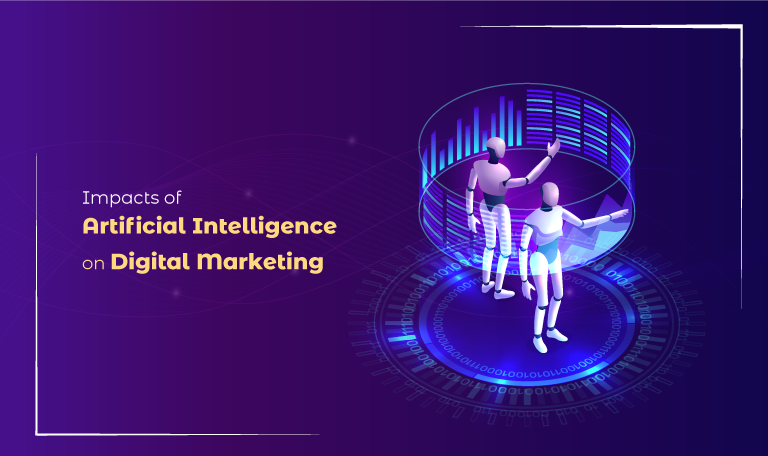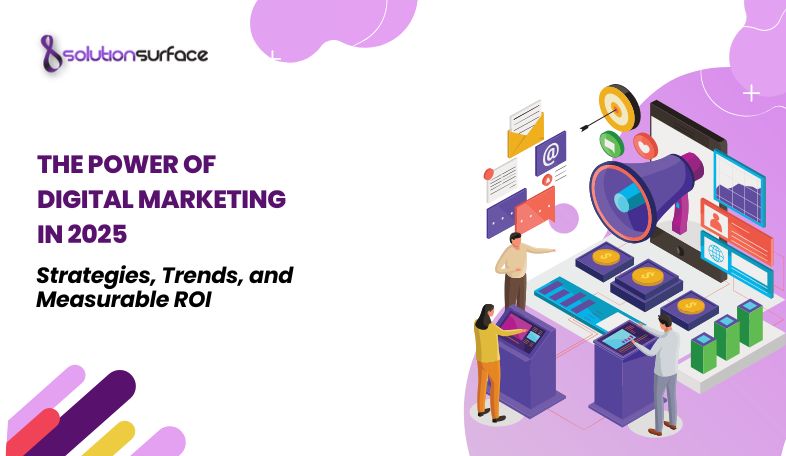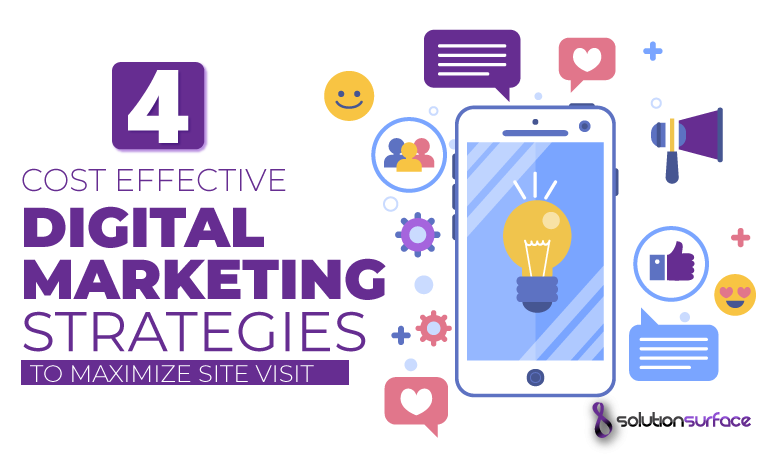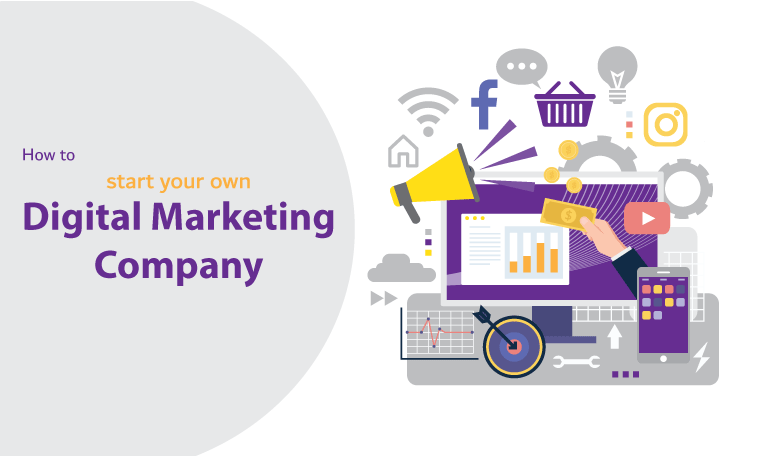Kemp House, City Road, London EC1V 2NX


Impacts of Artificial Intelligence on Digital Marketing
Artificial intelligence has taken over the world. From voice recognition to self-driving cars, from virtual reality to augmented reality, we are all gathered by devices run by AI.
Artificial intelligence is revolutionizing the world with intelligent machines.
And yes our future is going to depend on AI-driven machines.
What is Artificial Intelligence?
Artificial intelligence is the creation of a software-driven machine that can imitate the human brain. By imitation, the machine is supposed to think and react like the human mind.
The concept of Artificial Intelligence was given by John McCarthy. It is believed that AI can perform tasks more efficiently and accurately.
Artificial intelligence aims to mimic the cognitive functions of the human brain. So that the machines become enable to learn things and perform problem-solving techniques.
According to the research conducted by Gartner, AI will create 2.3 million jobs in 2020 while eliminating 1.8 million jobs. The reason behind eliminating 1.8 million jobs is the adaptation of machines to act like humans. Although the program development of AI-driven machines will depend on human but once the machine is ready, it eliminates human effort thus eliminating human resources.
The Three Types of Artificial Intelligence:

Here are the subcategories of artificial intelligence you must know:
- ANI: Artificial Narrow Intelligence – Weak AI stage, only performs specific tasks.
-
AGI: Artificial General Intelligence – Strong AI stage, performs intellectual tasks by imitating the human brain.
- ASI: Artificial Super Intelligence – Strongest AI stage, more intellectual than the human brain.
- User’s search history,
- Data stored in cached memory
- Current location
- Spelling variation
- Concept matching
- Local information
- Synonyms
- Time of search
- Current trends
Impacts of AI on Digital Marketing:
Artificial intelligence enables digital marketing to grow with cutting-edge technology. AI empowers predictive analysis and enhanced user experience. With remarkable inventions of the Internet of Things, Machine Learning, and Big Data, Artificial Intelligence promises to transform the digital marketing tactics with passing time.
AI has developed intelligent machines that can understand and record user behavior on the website. These machines then utilize the collected data to solve intellectual problems regarding customer issues.
Artificial intelligence has transformed digital marketing in the following ways:
Semantic Search:
AI has a big effect on semantic search mechanism. Semantic search is a data searching technique in which the user’s query is answered by understanding the contextual meaning of that certain query.
Based on machine learning, the semantic search focuses on the following factors:
AI has boosted the semantic search in a way that intelligent machines understand the query intent and show the most relevant results. Keywords are also important but machine learning is one step forward in recognizing the user needs.
Artificial intelligence helps search engines to understand the meaning of the user’s query in a better way and provide the user with the most appropriate results.
Content Creation & Curation:
AI amazed the world with the invention of Wordsmith which is a writing platform that can write reports, stories, and updates, etc. in a readable narrative.
Yes! Machines can now write too.
Artificial intelligence can produce 2000 articles per second. Content creation by AI is not only a fast but effective approach.
The term content curation is slightly different from content creation. In content creation, the relevant data is collected and organized in a manner to assist users in an informative way. For example, whenever we search something on an online store such as Amazon, the website shows as relevant products based on our query. Content curation helps online stores generate more revenue through recommendation engines.,/p>
Ad Targeting:
Ads promote businesses and are a significant part of digital marketing. AI is capable of generating and managing ad content. Also, artificial intelligence ad platforms such as Google and Facebook are targeting a more specific audience.
Promoting the right product at the right time to the right audience is the essence of advertising. And machine learning has accelerated the ad management system by understanding the likes, preferences, and interests of users.
AI helps computers to keep count on the user’s search history, demographics, previous purchases, etc. and increases user experience by presenting the right content to the right audience.
Chatbots:
Chatbots are programs designed to interact with humans. Many websites have already implemented chatbots. AI has transformed the way a user can interact with machines. Chatbots provide 24/7 customer support and answer queries simultaneously.
The chatbot software interprets the user query and responds to it with appropriate information. AI has enhanced user engagement with the chatbots systems.
Voice Search:
With the increasing use of mobile assistants such as Siri, Alexa, etc. it is expected that by the year 2020, 50% of all the searches will be done through voice search. Voice search is also the discovery of AI. It enables us to communicate with software.
People prefer voice searches over typed ones. It is easier to speak and ask the query rather than typing the whole question. The voice search practice has made companies use long-tail keywords and optimize their sites for local searches.
Predictive Marketing:
With AI, marketing techniques evolve more effectively. Artificial intelligence allows businesses to predict the future of the company. With predictive analytics, companies use data mining, machine learning, and AI to forecast the upcoming marketing trends in the digital world.
Artificial intelligence predicts marketing success by analyzing the user search pattern, brand preferences, buying frequency, etc. it segments the audience based on collected information and let companies know the requirements of the users and customers. Companies can manage production plans efficiently which is based on demand and supply system.
A/B Testing:
Artificial intelligence has made A/B testing easy. A/B testing is known as split testing in which multiple pages of a website are compared to evaluate which one can generate more leads and conversions.
The page evaluation is done by intelligent machines that assess the results more efficiently than humans.
Targeting Audience:
Artificial intelligence has enabled ad management platforms, such as Google, to target a specific audience for specific products or services. AI analyzes and records user location, age, gender, preferences, and interests. The ad manager segments the audience according to the collected information.
With the use of AI, companies are targeting a specific audience for their products and services and generating more ROI.
Lead Scoring:
Websites get different types of leads including hot leads, warm leads, and cold leads. Among these, the hot leads are more likely to buy from a website. On the other hand, warm leads are people interested in your products and services whereas cold leads are those who do not show any interest in buying.
AI prioritizes the hot leads and assists companies to enhance sales productivity. With artificial intelligence, brands are retaining their customers and generating more leads.
Web Development:
With AI, web development is only a few clicks away. Artificial intelligence is capable of designing websites according to the requirements of the company. Just choose the page layout, call-to-action, images, etc. and get your website developed without any complicated coding system.
Final Thoughts:
AI is revolutionizing the digital marketing industry at a very fast pace. With technological advancements, marketing strategies and practices have become more efficient. Regardless of industry, AI is developing the future of a digital world.
Related Posts

The Power of Digital Marketing in 2025 Strategies, Trends, and Measurable ROI
With fast technological progress and the way people shop changing,...
Read More
Cost Effective Digital Marketing Strategies to Maximize Site Visits
Thriving your business sales with cost-effective digital marketing strategies Interested...
Read More
How to Start Your Own Digital Marketing Company?
Over the past few years, the internet has become our...
Read More
Leave a Comment
Your email address will not be published. Required fields are marked *